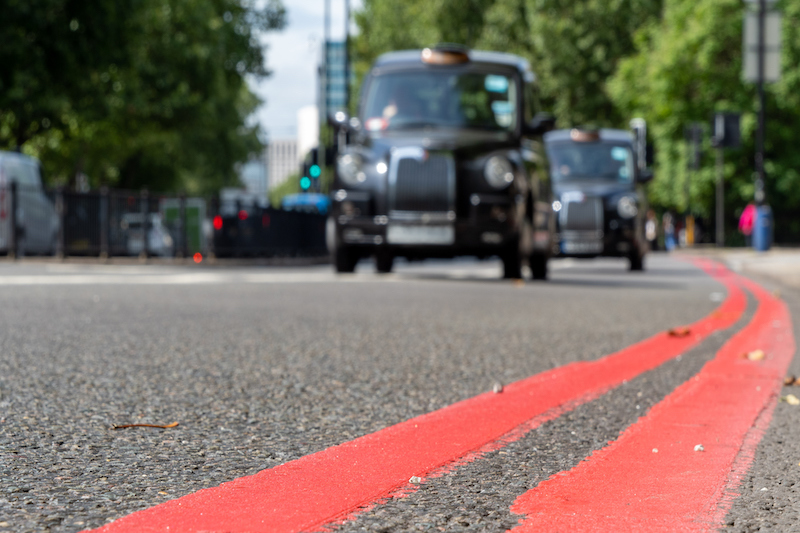6 tips for driving in the UK

You cannot park or stop at any time on double red lines
If you’re new to driving in the UK, or just new to driving, you might not be completely familiar with some of the rules and regulations. 1st CENTRAL are here to give you some handy tips and tricks to get you driving confidently.
1. London congestion charge and ULEZ charges
If you take a trip to the capital, you’ll need to know about the congestion charge and the ULEZ charge.
Congestion charge
On weekdays between 7am-6pm and on weekends between noon-6pm you’ll need to pay a congestion charge of £15 if you drive into central London. The charge was implemented to help control the flow of traffic in and around London, as well as to control noise and air pollution in the city.
ULEZ charge
If your vehicle doesn’t meet the ULEZ standard, you’ll need to pay a daily charge of £12.50 each time you drive in the zone. Currently, the zone is only within the North and South Circular roads but will expand to cover all London boroughs at the end of August 2023.
2. Using your car lights
There are several rules about when you can and can’t use the headlights on your car. It’s required that you use your headlights at night from just after sunset to just before sunrise, unless the road is extremely well-lit.
In built-up areas, you should use dipped headlights at night so as not to disturb residents. You must also use your headlights in low visibility – if you can’t see more than 100m ahead, your headlights need to be on.
However, your headlights aren’t allowed to be bright enough to dazzle other road users, including other drivers, pedestrians, cyclists, and horse riders.
3. Red and yellow lines
You might have noticed coloured lines running along the edges of the road, but do you know what they all mean?
- Single yellow line: Restrictions on parking at indicated times. You can pull over and let a passenger out, but the driver mustn’t leave the vehicle.
- Double yellow line: You can’t park at any time
- Single red line: You cannot park or stop at indicated times
- Double red line: You cannot park or stop at any time
4. Mobile phones
You may know it’s illegal to talk on the phone while you’re driving in the UK. But it’s also illegal to physically hold your phone or another device, even if the car isn’t moving.
This means that, even if you’re stuck in traffic or the device is offline or in airplane mode, you can get 6 points and be fined £200 for holding it. You’ll also lose your licence if you passed your driving test less than two years previously.
Using a handsfree device, like a built-in sat nav or Bluetooth headset, is fine as long as you’re not physically holding the device. The only times you can use a handheld device in a vehicle are:
- If you’re phoning emergency services
- You’re safely parked
- You’re making a contactless payment from the vehicle, ie at a drive-thru
- You’re using the device to park your vehicle remotely
5. The Highway Code
The Highway Code is essential reading for anyone driving in the UK, as it contains all the rules of the road.
Many of its guidelines and instructions are backed by law and you can therefore be punished for breaking them.
The points supported by law are clearly marked with wording like ‘must’ and ‘must not’ rather than ‘should’ and ‘should not’.
6. Parking
Parking in the UK can be challenging, especially when the rules aren’t clear.
The rules for parking in a city can be very different to those for parking in the country. City parking rules tend to be strict – there are very few places you can park on the street, and when permitted, it’s usually only at specific times.
However, parking in the country is much easier. There are parking bays along most streets, and not many restrictions on when you can park.
Check out our blog on 5 things ever driver should know to get some more tips and tricks.


